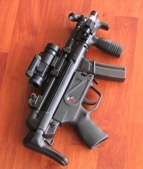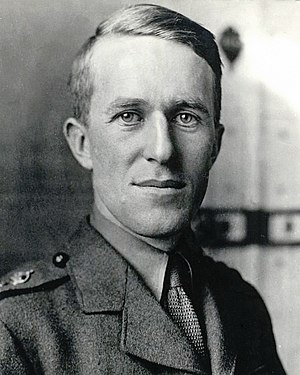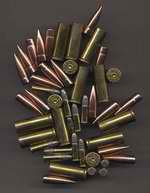| | | sniper |  |
|
+32parabellum Snake.Doctor Ma@fy gavroche Bibick Vash Shung ARTA pas_007 Andosten silver Tatayoyo V20C100 Olive38 Skyos Molon Labe Hellmut Darius J@r0d 300sav gm kelt Grands-Pas sgt_hartman GregX1 baron Bluephoenix SchwartZ Projektyle AL 44MAG le_marseillais armenia 36 participants | |
| Auteur | Message |
|---|
pas_007
Pilier du forum

Nombre de messages : 6201
Age : 63
Localisation : réserve indienne
Date d'inscription : 11/02/2006
 |  Sujet: Re: sniper Sujet: Re: sniper  Mar 18 Aoû 2009 - 21:24 Mar 18 Aoû 2009 - 21:24 | |
| - Citation :
- Les informations concernant la supériorité du Leclerc sur ses deux concurrents ne sont pas en libre accès.
Ok alors je vais me contenter du classement des suédois et de la liste des pays ayant achetés le leopard ....et je n'oublierais pas d'y ajouter les merkava IV | |
|   | | Darius
Pilier du forum

Nombre de messages : 6106
Age : 61
Localisation : Genève
Date d'inscription : 09/11/2005
 |  Sujet: Re: sniper Sujet: Re: sniper  Mar 18 Aoû 2009 - 21:58 Mar 18 Aoû 2009 - 21:58 | |
| - kelt a écrit:
- ....
Quand à soritr du merdier Afghan, le plus tot sera le mieux! hormis l'aguerrissement de nos troupes et la validation/démonstration d'équipement en situation de combat, il n'y a rien de positif à espérer en 2009.
Il y avait une réelle possibilité en 2002 d'arriver à y instaurer la paix, les Forces étrangères y étaient alors bien acceptées, l'aventure Irakienne et les mauvais choix politiques ont ruiné cette chance, la population Afghane en a marre, la présence de nos soldats est de plus en plus mal perçue.
kelt Pourtant tout avait déjà été dit dans l'ouvrage de TE Lawrence ("Laurence d'Arabie") "Les Sept Piliers de éa Sagesse / Seven Pillars of Wisdom". Lawrence y décrit la marche à a suivre et les erreurs à ne pas commettre. Au début des engagements par les Américains (et Anglais) en Afgha, je me suis dit "ça y est, pour une fois les Américains ont compris comment gagner une guerre "asymétrique"" en adoptant le "modèle Lawrencien". Dommage...ça n'a peut-être pas suffi.  Je vous recommande sa lecture. Lawrence est, en ce qui me concerne, un des plus grands stratèges du 20ième siècle, ensemble avec Lidell Hart et, peut-être, Martin Van Creveld | |
|   | | AL 44MAG
Expert

Nombre de messages : 2752
Age : 66
Localisation : bouillabaisse,pastis.. STAB !
Date d'inscription : 22/04/2006
 |  Sujet: Re: sniper Sujet: Re: sniper  Mar 18 Aoû 2009 - 22:05 Mar 18 Aoû 2009 - 22:05 | |
| - Ma@fy a écrit:
- AL 44MAG a écrit:
On en sort quand,de ce merdier ?
tu veux bien evidemment parler de ce sujet... nan ??? nan ???  non,pas du sujet ..de toutes façons,ça fait déjà longtemps que ce n'est pas celui d'origine.. je parlais de la situation qui motive cette discussion...  | |
|   | | Ma@fy
Expert

Nombre de messages : 1225
Age : 46
Localisation : France - Marne (51)
Date d'inscription : 28/05/2009
 |  Sujet: Re: sniper Sujet: Re: sniper  Mer 19 Aoû 2009 - 5:54 Mer 19 Aoû 2009 - 5:54 | |
| - AL 44MAG a écrit:
- non,pas du sujet ..de toutes façons,ça fait déjà longtemps que ce n'est pas celui d'origine..
je parlais de la situation qui motive cette discussion...
Je te rassure j'avais bien compris  Je passerais refaire un coucou vers la page 20 ou 30, je pense qu'ils peuvent le faire  | |
|   | | gm
Habitué
Nombre de messages : 109
Age : 82
Localisation : sud ouest france
Date d'inscription : 16/05/2009
 |  Sujet: Re: sniper Sujet: Re: sniper  Mer 19 Aoû 2009 - 6:14 Mer 19 Aoû 2009 - 6:14 | |
| connais pas martin van creveld peux tu nous en dire un peu plus.
a ta liste concernant les stratéges des conflits assymetrique j'y ajouterais orde Wingate (Palestine, abyssinie, birmanie) et pour les théoriciens le colonel français galula coqueluche des etaéts majors américains
cordialement | |
|   | | Darius
Pilier du forum

Nombre de messages : 6106
Age : 61
Localisation : Genève
Date d'inscription : 09/11/2005
 |  Sujet: Re: sniper Sujet: Re: sniper  Mer 19 Aoû 2009 - 7:36 Mer 19 Aoû 2009 - 7:36 | |
| - gm a écrit:
- connais pas martin van creveld peux tu nous en dire un peu plus.
a ta liste concernant les stratéges des conflits assymetrique j'y ajouterais orde Wingate (Palestine, abyssinie, birmanie) et pour les théoriciens le colonel français galula coqueluche des etaéts majors américains
cordialement Le livre le plus remarquable de, Martin van Creveld, cet historien israélien est, "La Transformation de la Guerre", publié en 1991.  Sa lecture est devenu lecture obligatoire de pas mal d'Ecoles de Guerre. Voilà ce qu'en dit le Lt-Col Ludovic Monnerat: La guerre a diamétralement changé depuis le milieu du XXe siècle, mais les militaires ont longuement tardé à l’admettre et à s’adapter. Ce livre flamboyant et polémique en reste à ce jour l’une des plus brillantes analyses. L’historien militaire Martin van Creveld a frappé les esprits durant les années 90 avec ses propos analytiques et prophétiques, publiés dès 1991 en langue anglaise, sur la transformation de la guerre. Une décennie plus tard, ce livre écrit au crépuscule de la guerre froide n’a pas pris une ride et constitue toujours une lecture obligatoire pour comprendre les conflits armés de notre époque – même si les faiblesses manifestes dont il souffre sont elles aussi restées inchangées. Comptant 318 pages, l’ouvrage est divisé en 7 chapitres qui décrivent la guerre contemporaine, les acteurs de la guerre à travers l’histoire, sa véritable nature, son déroulement, ses buts et ses raisons, pour conclure avec le futur de la guerre. De plus, une bibliographie sélective et commentée de 20 pages permet d’approfondir les réflexions suscitées, en particulier sur certains aspects méconnus de la guerre médiévale et antique. Le propos de l’auteur est radical et largement provocateur : la guerre comme poursuite de la politique par d’autres moyens telle que Clausewitz notamment l’a définie, et la distinction trinitaire entre gouvernement, armée et population, n’ont plus cours à notre époque. Une autre forme de guerre a émergé ces dernières décennies, ou plutôt a fait son grand retour sur la scène mondiale, après une longue éclipse due à la domination des Etats-nations à l’occidentale. Pour l’essentiel, les analyses de Martin van Creveld sont aussi pertinentes que percutantes. En montrant que la ferveur religieuse, le sens de la justice et surtout la survie ont constitué des motifs de guerres coutumiers, il autorise une bien meilleure compréhension des conflits de notre époque ; et notamment du fait qu’une stratégie axée sur des buts limités et un cadre politique rationnel est en situation d’infériorité face à des adversaires prêts à outrepasser toute limite pour vivre – ou mourir. Par ailleurs, l’auteur montre clairement que toute réflexion stratégique reste désincarnée et donc erronée aussi longtemps qu’elle ignore les raisons qui poussent les hommes à se battre. Il faut s’intéresser de près au fonctionnement des individus, aux relations de groupe et au climat social pour cerner le plaisir indéniable et le sentiment de libération que procure le combat. Le rôle mineur des femmes, auxquelles il a d’ailleurs consacré par la suite un autre livre, est à ce titre révélateur. Fortement influencé par l’étude de la première Intifada palestinienne ou du conflit vietnamien, Martin van Creveld affirme cependant de manière péremptoire que les armées conventionnelles sont de grands dinosaures, inadaptés aux conflits modernes et voués à disparaître. Or la montée en puissance des forces spéciales, les technologies de pointe à bas prix et l’interconnexion des réseaux leur permettent au contraire de se transformer en fonction des menaces asymétriques. De même, malgré une description très fine de la stratégie et de l’importance que revêtent les frictions ou l’incertitude, Martin van Creveld succombe parfois à la tentation de sélectionner les faits pour affermir des propos néanmoins contestables ou manichéens. Sa vision simpliste de l’Algérie française en est notamment la preuve. Il n’est guère étonnant que l’historien israélien soit à ce point controversé au sein des armées – à commencer par celle de son propre pays. Mais l’acuité presque exaltée avec laquelle il décrit la guerre future et la vaste perspective historique qui fondent ses réflexions font bien plus que compenser de tels travers. Un livre unique à tous égards. | |
|   | | joker_ch
Expert
Nombre de messages : 2900
Age : 68
Localisation : Ailleurs
Date d'inscription : 11/03/2007
 |  Sujet: Re: sniper Sujet: Re: sniper  Mer 19 Aoû 2009 - 9:29 Mer 19 Aoû 2009 - 9:29 | |
| @Darius Un ouvrage à lire absolument sur le sujet est : The accidental Guerrilla, de David Kilcullen. Un résumé: - Citation :
- March 11, 2009 | One night in 1996, in the Gurat Valley in Java, David Kilcullen, an advisor for the Australian Army doing fieldwork for his dissertation on insurgencies in traditional societies, was visited by four vaguely menacing young men. They'd come to quiz him about his reasons for being in the area and all the questions he'd been asking about an Islamic guerrilla movement that had emerged there 50 years earlier. Two of the men were from the valley, and talked enthusiastically on the subject of "local issues, personalities and events." The other two looked "bored and irritated" by these topics and at times seemed to have difficulty following the conversation. When they finally spoke, it was with foreign accents. They grilled Kilcullen on such global issues as the Arab-Israeli conflict, the depravity of American culture and the meddling of the West in Muslim countries. When they talked to each other, they spoke Arabic. They said they were exchange students from Yemen.
For Kilcullen, who would go on to become an influential theorist on counterinsurgency and the chief advisor to Gen. David Petraeus during the 2007 Iraq war surge, this minor (if unsettling) incident was the seed of a new understanding of how international Islamist terrorism works by exploiting local grievances that may or may not have much to do with religion. Kilcullen's ideas, as implemented by Petraeus, helped make the surge more successful than earlier American initiatives in the war, and they are likely to shape U.S. policy in Iraq and Afghanistan for the immediate future. Kilcullen, who was profiled in the New Yorker in 2006 and currently works for a think tank called the Center for New American Security (CNAS), has laid out his views in a new book, "The Accidental Guerrilla: Fighting Small Wars in the Midst of a Big One." Filled with lists, diagrams and bullet points (never underestimate the effect of PowerPoint on contemporary official prose style), the book lays out what Kilcullen thinks America must do to redeem itself in Iraq and Afghanistan (not to mention the wider Muslim world). Like many of his colleagues, however, he seems skeptical that we'll summon the will to pull it off.
Quantcast
Although Kilcullen has worked for the Bush administration (most notably as an advisor to former Secretary of State Condoleezza Rice) he has never disguised his belief that the 2003 invasion of Iraq was "an extremely serious strategic error" -- "fucking stupid" is how he reportedly characterized it in a less formal context. Furthermore, he regards the early conduct of the wars in both Iraq and Afghanistan as ineffective and often self-defeating. Nevertheless, he insists that America owes it to both nations not to abandon them to the sectarian bloodshed that would probably follow a hasty withdrawal: "Regardless of anyone's position on the decision to invade, those obligations still stand and cannot be wished away merely because they have proven inconvenient." He also adds his voice to the choir of experts warning that the resurgence of the Taliban and related militant outfits in Afghanistan and Pakistan will, if unchecked, allow international terrorists to flourish there once more.
The crux of Kilcullen's argument is that until recently we've approached both conflicts, and every other situation involving violent Islamist militants ("Takfiris," as he calls them), with the wrong attitudes and the wrong methods. These enemies practice a new form of "hybrid warfare," while our response is still framed by old-fashioned conventional warfare epitomized by World War II. Of all the conceptual resets we'll need to make to successfully fight this new kind of war, probably the most crucial is the shift from the notion of "enemy-centric" warfare to "population-centric" warfare.
In the past, the job of the military could be summed up bluntly enough: to find the enemy and kill him. The relatively new discipline of counterterrorism merely adapted this approach, aiming to sniff out terrorists and their networks and then destroy them. It has proceeded, Kilcullen writes, "from the assumption that removing the network removes the problem"; catch and eliminate bin Laden and his followers, and the conflict is won. Kilcullen regards this approach as sorely inadequate. To his mind, the new breed of hybrid war is better fought using the methods of counterinsurgency, which focus not on the enemy but on the population, "seeking to protect it from harm by, or interaction with the insurgent [and] competing with the insurgent for influence and control at the grassroots level. Its basic assumption is that insurgency is a mass social phenomenon, that the enemy rides a social wave comprising genuine popular grievances and an ability to manipulate them, and that dealing with this broader social and political dynamic, while gaining time for targeted reforms to work by applying a series of tailored, full-spectrum security measures, is the most promising path to ultimately resolve the problem."
This idea may not seem particularly original; it resembles all sorts of suggestions for dealing with militant Islam that surfaced after Sept. 11. From exhortations to "drain the swamp" to starry-eyed pacifist visions of "bombing" the Afghans with food and medical supplies, many commentators have suggested that if the Muslims in far-off lands weren't so miserable and downtrodden to begin with, they wouldn't be so angry at us. But where the average American tends to see Takfiri terrorists as lashing out at Western civilians in an overwhelming, nihilistic rage (which, depending on the American's politics, may or may not have understandable causes), Kilcullen sees coldblooded calculation.
This is how those Javanese insurgents he met in 1996 come into it. Half of the delegation that dropped in on Kilcullen consisted of the Yemeni "students" -- really Takfiri militants seeking to capitalize on the discontent of locals and their preexisting network of anti-government fighters by persuading them that their provincial struggle was part of a larger Islamist cause. The other two young men were what Kilcullen calls "accidental guerrillas," people whose motivations had less to do with any international religious ideology than with local grievances and the desire for self-determination. Members of the first category are hardcore, "implacable fanatics" who will pursue jihad across the globe to the bitter end. The second category, however, while they may object to Western cultural encroachments, "more often fight us primarily because we are intruding into their space." This second group, by far the majority in any given trouble zone, can be "co-opted," provided Western authorities can prove themselves better able to help the locals get the freedom, stability and other benefits they crave.
The fanatics, whether they call themselves al-Qaida or something else, need the accidental guerrillas to function. They rely on sympathetic locals to provide them with ground fighters, supplies, places to hide, new recruits and so on. According to Kilcullen, the Takfiris see the population as the real "prize" in the fight. Their goal is to win over as many of these disaffected Muslims as possible, with the fantasy of eventually leading popular insurgencies in overthrowing secular, moderate or Western-backed governments in the Middle East and Asia and replacing them with Islamist regimes and sharia law. Eventually, but only once the Caliphate is restored, they plan to set about converting (forcibly, if necessary) the entire planet.Americans tend to think of terror attacks like those on Sept. 11 as expressive, motivated by a combination of political protest and sheer hatred, aimed simply at slaughtering infidel civilians and vengefully forcing the U.S. to partake of the pain suffered by oppressed Muslims everywhere. (Granted, this is also probably how the deluded hijackers themselves saw it.) Not so, counters Kilcullen; the leadership of al-Qaida is actually far more practical, seeking above all to provoke the West to respond in some overwhelming and intrusive way that will further alienate the world's Muslims. It's the response, the exorbitant cost in lives, money and political capital, that really hurts the target, not the initial attack. For every dollar al-Qaida spent on the Sept. 11 attacks, it has sapped millions out of the U.S. Treasury.
The Iraq war has been al-Qaida's greatest success, nurturing anti-Americanism around the globe and dragging Western soldiers into Muslim nations where their outdated tactics will inadvertently serve to recruit increasing numbers of local, accidental guerrillas. (A technologically intimidating invading army of Christians also makes the Takfiris seem less like the interloping, opportunistic foreigners they are.) This method works on fellow Muslims, too; in 2006, al-Qaida in Iraq bombed one of the holiest sites in Shiite Islam in order to provoke the Shiite majority into lashing out against the Sunni minority, so that al-Qaida in Iraq could, in turn, offer itself to Iraq's Sunnis as the only force capable of protecting them. The carnage that prevailed in Iraq in 2006 was largely the result of a chain reaction of retaliations set off by that bombing.
Ads by Google
Until recently, Western militaries have played right into this scheme, focusing on catching "bad guys" even when those bad guys have the capacity to go to ground, melting into the civilian population and setting them up as targets. Attempts to hunt the guerrillas down lead to civilian casualties and the destruction of civil society, catastrophes that are not "collateral damage," as the military has traditionally put it, but the point of the original attack; the Takfiris' purpose in blowing up a convey with an IED is not to kill Western troops but to further alienate them from the locals. The insurgents, Kilcullen maintains, understand that winning the sympathies of a region's people is their "main effort," and that shooting, bombing and fighting is really just "support for a sophisticated propaganda campaign."
Using a road-building project in Afghanistan and the much-touted 2007 tribal "Awakening" in Iraq as case studies, Kilcullen argues for a different approach. The road project, built by a Provincial Reconstruction Team with support from a Brigade Combat Team in the Kunar River Valley, employed Afghan workers supervised by local leaders, giving them a stake in the project and a goal shared with the Western troops charged to protect them. By concentrating on guarding the project and its workers -- rather than chasing after the Taliban fighters who tried to sabotage it -- the Westerners were able to cast themselves as the party with something constructive to offer the Afghans. In traditional military terms, this might seem like ceding the initiative by presenting themselves to be attacked, but, as Kilcullen explains, anything done to win over the population is really an offensive move. In the case of the road project, it also drew the extremists out of hiding by forcing them to come to the road. As a commander told Kilcullen, "Our people are in the valley, daily demonstrating that we don't eat babies and that we care for the people ... [while] the enemy's only response is threat, intimidation and physical attacks."
Humanitarian aid alone can't accomplish this. It remains a job for men with guns, even if the assigned task -- providing 24-hour protection for a civilian population -- sometimes looks more like policing than warfare. Security is the single overriding need of people living in weak states, and Kilcullen points out that rule of law doesn't fall too far behind that. (It's especially difficult for Westerners who have no cultural memory of living under chaotic conditions with no viable civil authority to grasp just how scary this can be. We tend to fixate on the menace posed by authoritarian tyrants like Saddam Hussein, forgetting that a person killed in a civil war is just as dead as someone killed by a dictator.) One service the Taliban has excelled in providing to Afghans in isolated regions, for example, is dispute resolution. When you're quarreling with your neighbor about who owns those goats, if there isn't some authority, however merciless, to appeal to, things can degenerate into a Hobbesian state pretty quickly. The Taliban first gained power in the 1990s by offering just this sort of adjudication, and they haven't forgotten how well it worked. Unless the West helps the Afghans set up better civil institutions, they'll use it again.
Quantcast
Kilcullen makes it clear that efforts to set up viable governance in places like Iraq and Afghanistan must involve established local power structures (like Iraq's tribes) and customs (like the elaborate Iraq blood-debt resolution ritual known as the "suhl"). The neoconservative pipe dream of making over Iraq and Afghanistan as Western-style democracies has to be set aside. Most difficult of all, homegrown police, politicians, judges and other officials who aren't either corrupt or pursuing a purely sectarian agenda have to be put in place. Kilcullen thinks this can be done, but it will be really difficult and really expensive. And it will take a while. And the result is unlikely to be the sort of government Americans admire. Yet if Western forces aren't willing to stick around until it's done, the Takfiris will be waiting to step in and fill the vacuum.
The likelihood that the American public, reeling from the meltdown of the economy, will get behind such a massive enterprise seems slim. I recently heard Kilcullen's colleague at the CNAS, Thomas Ricks, describe in shocked tones the response of a "liberal Mill Valley" audience when he explained that a too-quick withdrawal from Iraq could precipitate a genocide. "Well, genocides happen," they shrugged. It was old-fashioned American hubris that got us into this horrendous fix, the neocon delusion that our military superiority could accomplish anything and the weird conviction that if you scratch the surface of even the most bellicose tribal chieftain you'll find beneath it the equivalent of a Kansas City Elks Club officer eager to cast his vote and partake of the blessings of the free market. Unfortunately, the resounding lesson we've learned from the Iraq war -- Don't try that again! -- can't help us get out of the mess the Bush administration left behind.
Perhaps only one thing remains certain: The people responsible for whatever blowback ultimately results from the previous administration will never admit to their culpability in the disastrous determination to invade Iraq. "He kept us safe," will be their refrain when the subject is their former boss, and no fire-breathing Islamist radical ever peddled a bigger lie. | |
|   | | joker_ch
Expert
Nombre de messages : 2900
Age : 68
Localisation : Ailleurs
Date d'inscription : 11/03/2007
 |  Sujet: Re: sniper Sujet: Re: sniper  Mer 19 Aoû 2009 - 9:29 Mer 19 Aoû 2009 - 9:29 | |
| Un autre livre passionant est Sniper One de Dan Mills, qui décrit finalement un combat du 21'ème siècle dans un mileux urbain ou deux adversaires se font face à armes égales. Sauf que les insurgés ont pour eux le nombre et la fanatisme et les forces régulières (Anglais) l'entrainement et la compétence. - Citation :
- You cannot put this book down after opening it. That, I can guarantee you. I bought this book after reading good reviews online. It took me less than 24 hours to read this—just enough to take the tiredness off me, not letting me stop, as every page gives you a first-hand account of what happened to Sniper Platoon, Y Company of the Princess of Wales Royal Regiment (PWRR) when they arrived in Iraq in April 2004, having missed being in the action of Operation Iraqi Freedom. Their instructions were to conduct peacekeeping operations, but then they were in the fight of their lives in August 2004—the longest and most vicious firefight experienced by British troops in over 50 years.
The PWRR is England’s most decorated regiment, and has been in major theatres of war since 1663. Private Johnson Beharry received his Victoria Cross during this engagement, the first recipient since the last Victoria Crosses were awarded for service in the Falklands War.
Sgt. Dan Mills commanded the Sniper Platoon Y Coy when they were deployed to the city of Al Amarah and take up positions at the Cimic House which was the most defensible position within the city as it was surrounded by a river, giving it a natural barrier for attacks from several directions. This will be the place from which you will get to read one of the most engaging stories given by a British soldier ever.
For four months the PWRR was engaged in pitch battles against the insurgents, who were basically from the Mehdi Army/OMS (Office of Moqtada al-Sadr). Initially they were just allowed to bring their L-96s without their mortars, which was a regrettable decision. But from there, they beefed up the Cimic compound where they started placing defensive positions that gave them a 360-degree view of the city, and that gave them a definite advantage. But then, they were faced against a 500-strong well-armed force for their 100-strong unit.
However, it wasn’t a walk in the park for them. As the firing starts, all hands were needed, and whatever weapon they’ve got was brought to bear, L-96s, SA80s, GPMG, and the Warrior Tanks (which Beharry drove one that led to his Victoria Cross). Harassed from all sides with incessant mortar attacks that went on night and day, this would make it even be more ferocious than Black Hawk Down. During a re-supply, the OMS foot soldiers beat them to a choke point that became an almost meat grinder for the British troops and the Warrior tanks with multiple points of attack and RPGs flying all over coupled with someone armed with a Dragunov that made it even more dangerous. Beharry, with his badly damaged Warrior that had taken in 5 RPG hits and full of casualties, drove with his head protruding outside as smoke was coming out of the tank and was annoyingly noisy in the engine area due to damage. He had to reach the Cimic compound for safety and just went charging on, with RPGs flying pass and bullets clanging at the sides. He got there, helped evacuate the casualties and then passed out with an AK
round embedded in his helmet.
Operation Waterloo was an offensive that they brought the fight to the enemy and take out enemy mortar positions, which had been getting very dangerous for the guys at the Cimic compound. Backed by Spectre Gunships, and Challenger tanks, the offensive pushed back the OMS with their main building falling to the coalition forces. When there were no Spectre Gunships available, a Barrett equipped sniper team that can call in airstrikes was sent to assist them. The reinforcing sniper team made a great show against the OMS for their ability to reach out and touch the enemy with one of the most dangerous sniper
guns in the world.
The Sniper Platoon of Y Company manned the high areas of the compound, ensuring that no one from the enemy was able to get near and taking our RPG and mortar positions that would try and nail the Cimic compound positions.
The attacks of the OMS were a sustained one, from 05 August to 28 August 2004, with the 15th to the 25th of August the most intense days of fighting, isolating Y Company from reinforcements and re-supply. The men of Y Company were instructed to leave Cimic compound when it became untenable to defend it. But they didn’t budge, no man wanted to be relieved, and even suffering from heatstroke, no one would dare leave a position, preferring to sleep while lying prone to watch for enemy movements.
They almost got overrun by the enemy, which came to almost 30 metres of the Cimic gates. They suffered 6 serious injuries and one fatality, Private Chris “Ray” Rayment in an accident when he raised the barrier to allow a Pinky (a Land Rover) to get inside, but it struck the linkage that brought the barrier down on him, killing him. The OMS suffered over 200 casualties, making them an ineffective force to mount another round of assaults. A bullet left a hole on Sgt. Dan Mill’s body armour.
Sgt. Mills explains that the siege of Cimic was not only the lengthiest continuous action fought by the British Army since the Korean war, but was also the longest stand fought since World War II. Y Company had faced 85 assaults and fired 33,000 rounds, and were hammered by over 500 mortar rounds, 59 direct hits by RPGs, and six 107mm rockets. The whole 1st Battalion of the PWRR that they were attached to in the Maysan Province overall had 963 contacts, with two dead, and 48 seriously wounded.
This is one of the greatest gripping accounts of modern war, and saying it as is, and political correctness be damned. The Ministry of Defense (MOD) tried to supress this book, but was too late as Sgt. Mills have actually applied to put his accounts into a book before the ban was put into place. The Cimic siege was greatly played down by the Labour government, as the PM Tony Blair was being criticised for War In Iraq, and tried to project a situation of calmness in the region controlled by the UK forces. This book just proved to be the opposite. Joker | |
|   | | Cassius
Habitué

Nombre de messages : 393
Age : 110
Localisation : .fr
Date d'inscription : 17/12/2006
 |  Sujet: Re: sniper Sujet: Re: sniper  Mer 19 Aoû 2009 - 15:03 Mer 19 Aoû 2009 - 15:03 | |
| Bonjour, Merci Joker.  Quelqu'un aurait le courage de traduire en français ? J'en demande beaucoup, je sais...  | |
|   | | Darius
Pilier du forum

Nombre de messages : 6106
Age : 61
Localisation : Genève
Date d'inscription : 09/11/2005
 | |   | | Skyos
Pilier du forum

Nombre de messages : 13113
Localisation : Suisse
Date d'inscription : 09/05/2007
 |  Sujet: Re: sniper Sujet: Re: sniper  Mer 19 Aoû 2009 - 18:59 Mer 19 Aoû 2009 - 18:59 | |
| | |
|   | | Tib545
Expert

Nombre de messages : 882
Age : 36
Localisation : Bienne (CH)
Date d'inscription : 01/02/2008
 |  Sujet: Re: sniper Sujet: Re: sniper  Mer 19 Aoû 2009 - 19:20 Mer 19 Aoû 2009 - 19:20 | |
| | |
|   | | Skyos
Pilier du forum

Nombre de messages : 13113
Localisation : Suisse
Date d'inscription : 09/05/2007
 |  Sujet: Re: sniper Sujet: Re: sniper  Mer 19 Aoû 2009 - 19:31 Mer 19 Aoû 2009 - 19:31 | |
| | |
|   | | Grands-Pas
Expert

Nombre de messages : 3004
Age : 46
Localisation : Créteil (94), FRANCE
Date d'inscription : 17/11/2007
 |  Sujet: Re: sniper Sujet: Re: sniper  Mer 19 Aoû 2009 - 19:35 Mer 19 Aoû 2009 - 19:35 | |
| Chez nous, il y en a des pubs dans le métro... | |
|   | | Tib545
Expert

Nombre de messages : 882
Age : 36
Localisation : Bienne (CH)
Date d'inscription : 01/02/2008
 |  Sujet: Re: sniper Sujet: Re: sniper  Jeu 20 Aoû 2009 - 15:23 Jeu 20 Aoû 2009 - 15:23 | |
| | |
|   | | Contenu sponsorisé
 |  Sujet: Re: sniper Sujet: Re: sniper  | |
| |
|   | | | | sniper |  |
|
Sujets similaires |  |
|
| | Permission de ce forum: | Vous ne pouvez pas répondre aux sujets dans ce forum
| |
| |
| |
